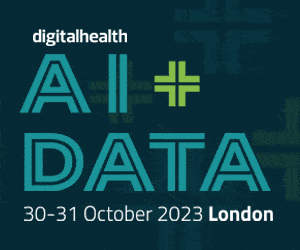Microsoft launches new AI services for Health
- 11 October 2023

Microsoft has continued to accelerate its drive into AI tools for health, with the launch of a series of new analytics and AI services, as part of its new Fabric data analytics platform and Azure AI services.
The announcements are the latest in the series of health AI initiatives from the tech giant this year, including its partnership with Epic announced in April, and the global launch of DAX ambient clinical noting by its Nuance subsidiary.
The new health specific tools in Microsoft’s Fabric analytics platform, include tools to ingest FHIR, imaging and medical device data, and to prepare and enrich data to enable users to create analytics and insights.
Further capabilities include new tools to de-identify patient identifiable data and summarise unstructured clinical notes.
The new de-identification tools is said to be able to be able to be automatically detect and de-identify patient identifiable health information (PHI).
The company named three launch clients as being early adopters in the US, Singapore and Canada. Arthur Health in Ontario, Canada, which is using Fabric to create unified data; Sing Health, which plans to use fabric and health care data solution and then use generative AI on top; and North Western Medicine in Chicago, which is using Fabric to build unified data foundation to then leverage analytics and AI.
Speaking at a press briefing event at the HLTH show in Las Vegas on Sunday, Doug King, CIO at North West Medicine, said Fabric offered a tool to build a unified data environment, providing the foundation to drive analytics, insight and AI tools using real-time data.
Talking about the challenges of data in health he said: “There has been a massive number of mergers and acquisitions of healthcare providers in the US, which has created an environment of very disparate data environments”.
King said fragmentation made analytics much more difficult “Not having data in a single place makes it very difficult to have insight into data and actionable insights, and it’s particularly difficult to get benefits of AI when you have very disparate data.”

He added: “We have on premise solutions that have served us well as a data platform and warehouses, but they fall short when you want to leverage data in real time and that is where it is going.”
Building services on top of data
Microsoft also announced the launch of new AI tools in Azure Health Insights, providing tools that healthcare organisations can leverage to build services upon their data.
The first, Clinical Timeline, provides the ability to take unstructured patient notes data and place it into a chronological timeline.
The second, Clinical Report Simplification, simplifies a clinical report for both the clinician and patient,
Radiology Insights, meanwhile, ensure findings are surfaced in radiology reports – looking for mismatches – and surfaces recommendations made.
A further tool offers text analytics capabilities or clinical notes, including the ability to assist with clinical coding.
At the same press event Microsoft also spoke of its commitment to building trust and transparency in AI for healthcare.
David Rhew, global CMIO for Microsoft Health said “Trust, openness and transparency underpins everything we do on AI in healthcare.”
Umang Patel, chief clinical information officer at Microsoft, will be among the speakers at Digital Health’s AI and Data conference running from 30-31 October at the Business Design Centre in London. All sessions are CPD accredited, and the full programme agenda can be found here. AI and Data is free for the NHS, public sector, start-ups, charities, education and research. Commercial tickets start from £275+VAT. Register here.




